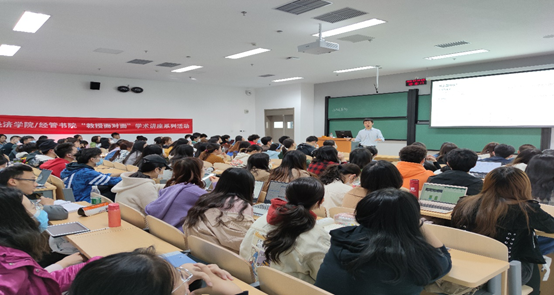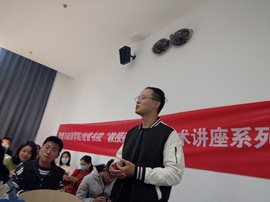Contribution: Tang Luyao
Photography: Shen Wentao
In order to enrich the academic and cultural life of undergraduates and graduate students in Liangxiang Campus and to fully implement the requirements for the training of talents in the School, the Center for Scientific Research and Academic Exchange of the School of Management and Economics, the Sub-Committee of the School of Management and Economics and the Academic and Entrepreneurship Centre jointly organized a series of "Professors Face to Face" academic lectures, based on scientific research and education, taking full advantage of the academic resources of the university, giving full play to the role of tutors, inviting well-known professors from various professional fields of the School of Management and Economics to Liangxiang Campus to introduce the cutting-edge knowledge of management and explain the latest academic research work, The aim is to cultivate students' academic interest, consolidate the foundation of academic research, draw the distance between the tutors and the college students, and improve the quality of education.
On October 16,2020, the first lecture on "Professors face to face" was held successfully in Room 202, North Building, Liberal Arts Teaching Building, Liangxiang Campus. Professor Hao Yu, School of Management and Economics, Beijing Institute of Technology, brought to college students "Chinese environmental federalism: the application and development of environmental decentralization in the field of energy and environment ." More than 100 students attended this lecture.

Professor Hao Yu made a relatively easy-to-understand science popularization for undergraduate students, and elaborated the meaning of environmental decentralization, the development process of environmental decentralization in China and the development results in the field of energy and environment. Professor Hao Yu's lecture explained a lot of obscure environmental knowledge, and combined many pictures and specific current politics to deepen the students' understanding, so that students have a deeper understanding of environmental decentralization and the current international environmental situation.









